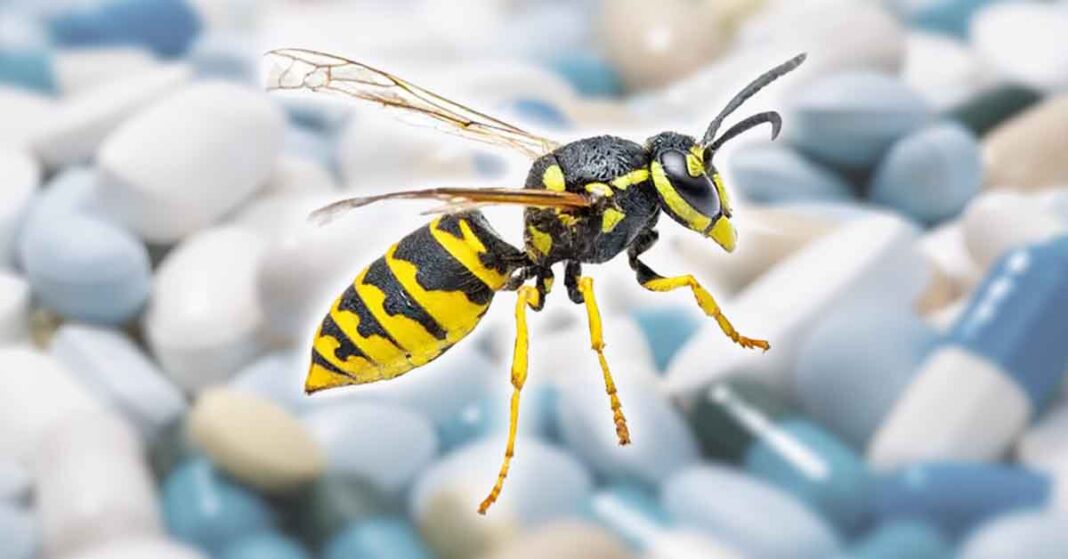Two competing molecules affect the severity of anaphylaxis in the body: Platelet-activating factor (PAF) correlates with increased anaphylaxis severity, while PAF-acetylhydrolase (PAF-AH) inactivates PAF, decreasing anaphylaxis severity.
Patients take lipid-lowering medications (LLMs) like statins to help decrease LDL cholesterol, but LLMs also decrease the amount of PAF-AH circulating in the blood. Researchers sought to determine whether this increases the risk of severe anaphylaxis.
They conducted a retrospective chart review of patients in Canada and the US between 2010-2023. Patients with multi-system reactions to insect stings were included and the Brown Severity Score was used to grade anaphylaxis severity.
They performed logistic regression to examine the association between LLM and anaphylaxis severity (mild/moderate vs severe) and adjusted for age, sex, medications (beta-blocker, ACE-inhibitor), and comorbidities (mastocytosis, respiratory disorders).
The study included 730 patients (414 females, 316 males; median age 42; ages 2–90), of whom 86 (12%) were on LLM. 471 (65%) had confirmed Hymenoptera venom anaphylaxis (from wasps, bees, etc) by skin test or sIgE.
Among all patients, 200 (27%) had severe reactions, while 530 (73%) had mild to moderate reactions. Among patients on LLM, 38 (44%) had severe reactions, while 48 (56%) had mild to moderate reactions. Among all patients, use of LLM was significantly associated with increased anaphylaxis severity.
They concluded that LLM use was significantly associated with increased anaphylaxis severity.
This is the first study to report this association in clinical practice. Its findings are important given widespread use of LLM worldwide and their potential impact on patients with anaphylaxis.





